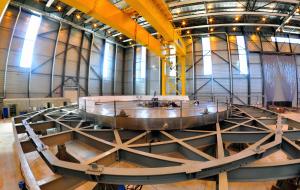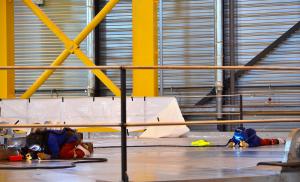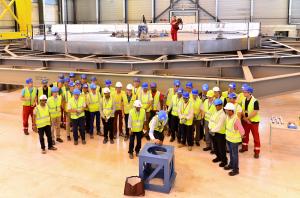Cryostat welding begins
A few weeks ago, the six tier 1 segments of the cryostat base were positioned on an assembly frame in the Cryostat Workshop and readied for welding operations. Using optical metrology, the 50-tonne elements were carefully aligned like so many slices of a giant steel pie, each separated from the next by a 4 millimetre gap to be filled by welding.
The welding of such a giant component is an impressive sight indeed. Welders, crouching or lying, look positively small on the polished steel surfaces of the segments. With protective masks that are illuminated by the intense blue light of the electric arc, they work in perfectly coordinated pairs—one operating from on top of the 50-millimetre-thick steel plate and the other, invisible, from underneath.
As each segment is made of two steel plates joined by a series of ribs, the same welding operations will be performed on both the upper and lower plates.
When all welding operations are completed on the six tier 1 segments, the pedestal ring (which supports the machine) and the "rim" that runs around the base will be added, thus completing, less than a year and a half from now, the single largest load of the machine assembly—the cryostat base.




